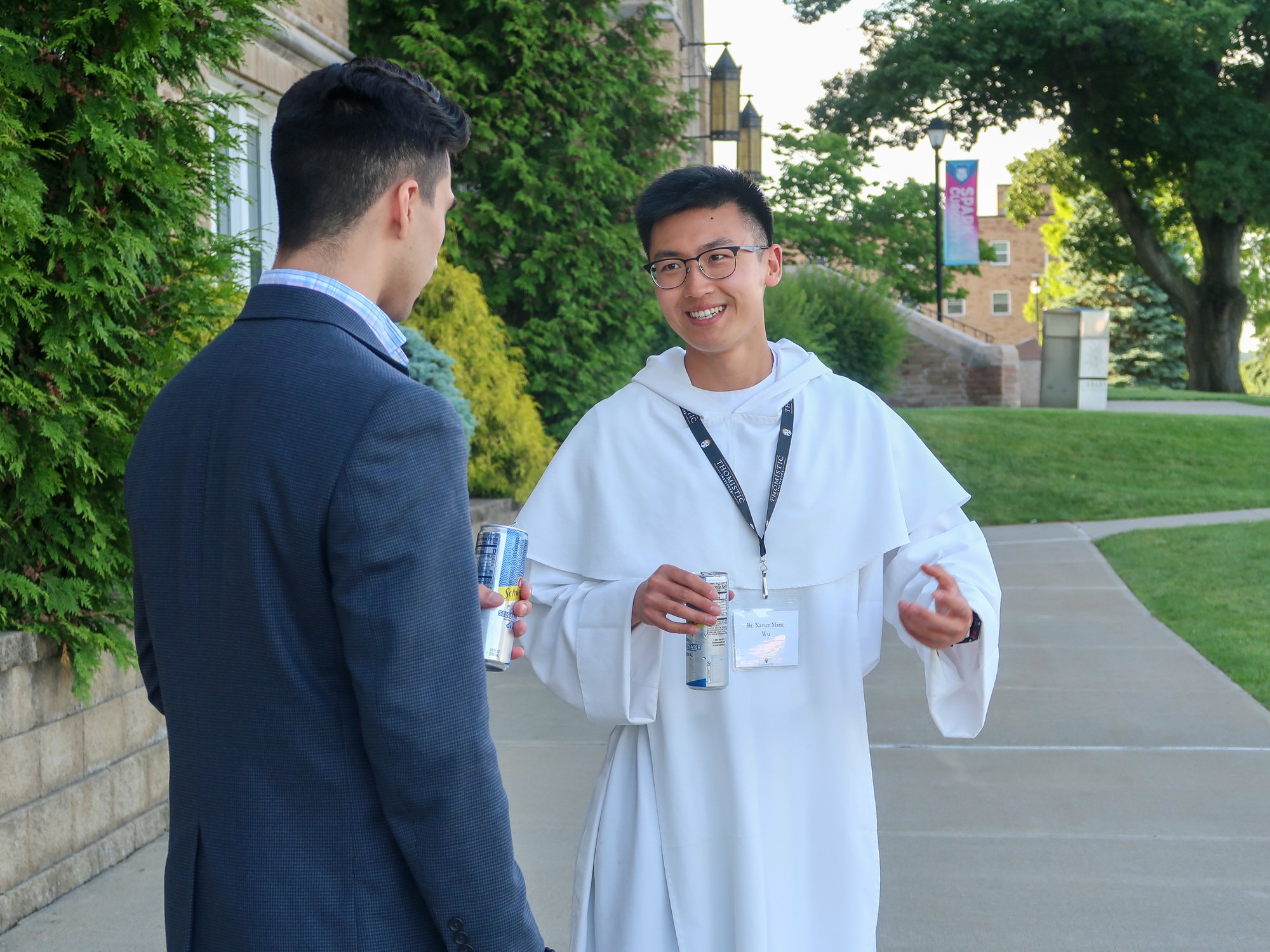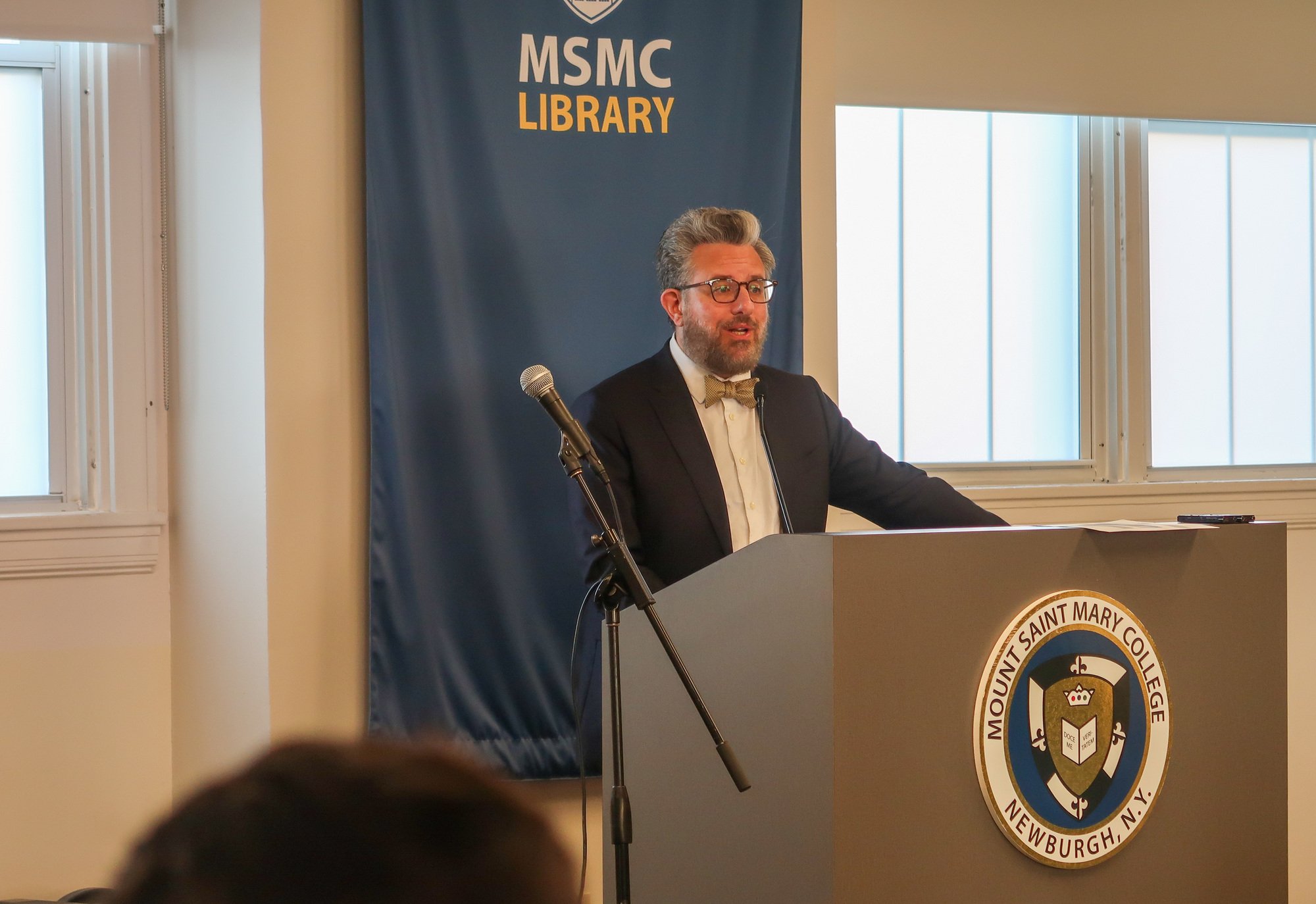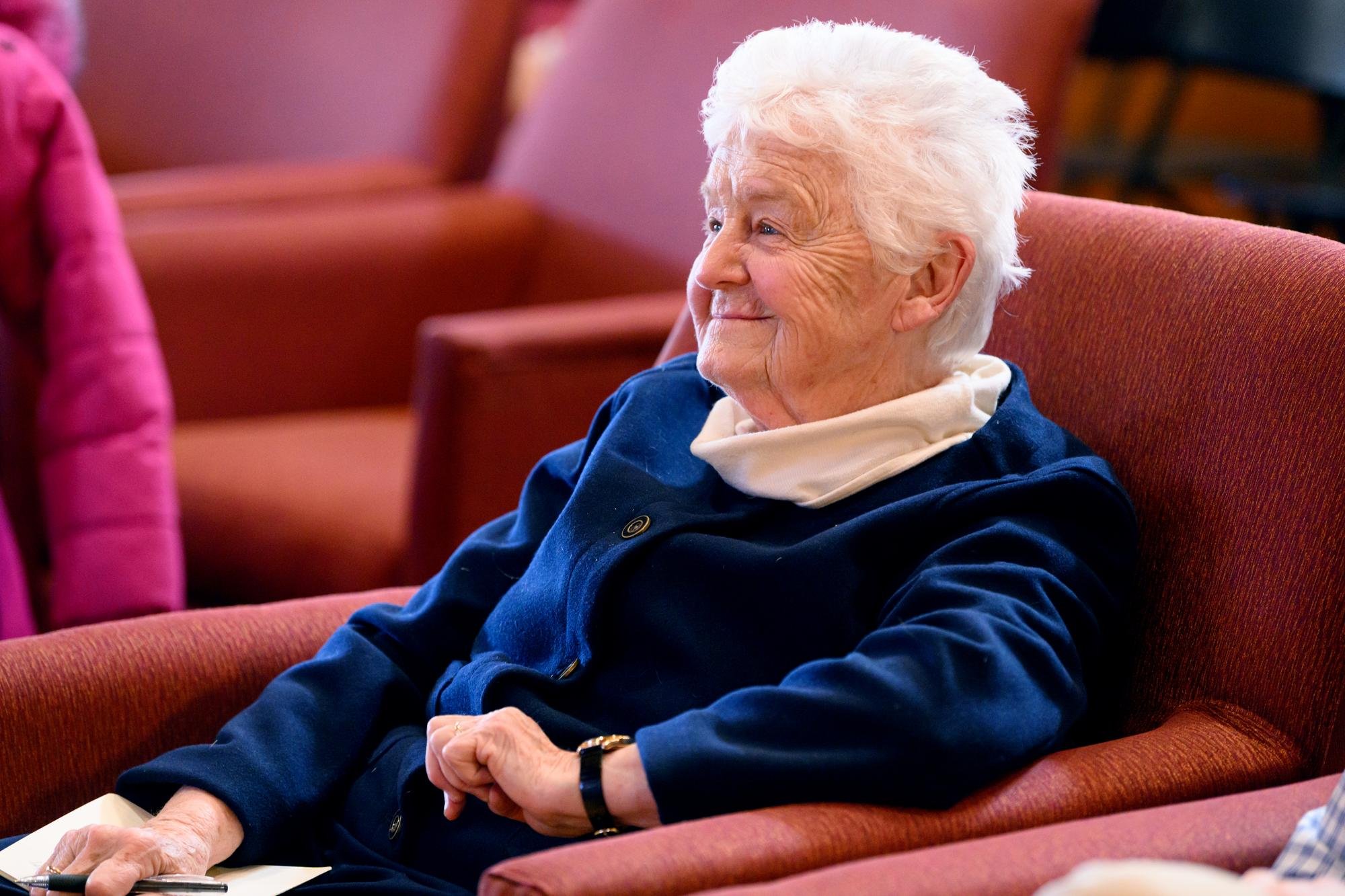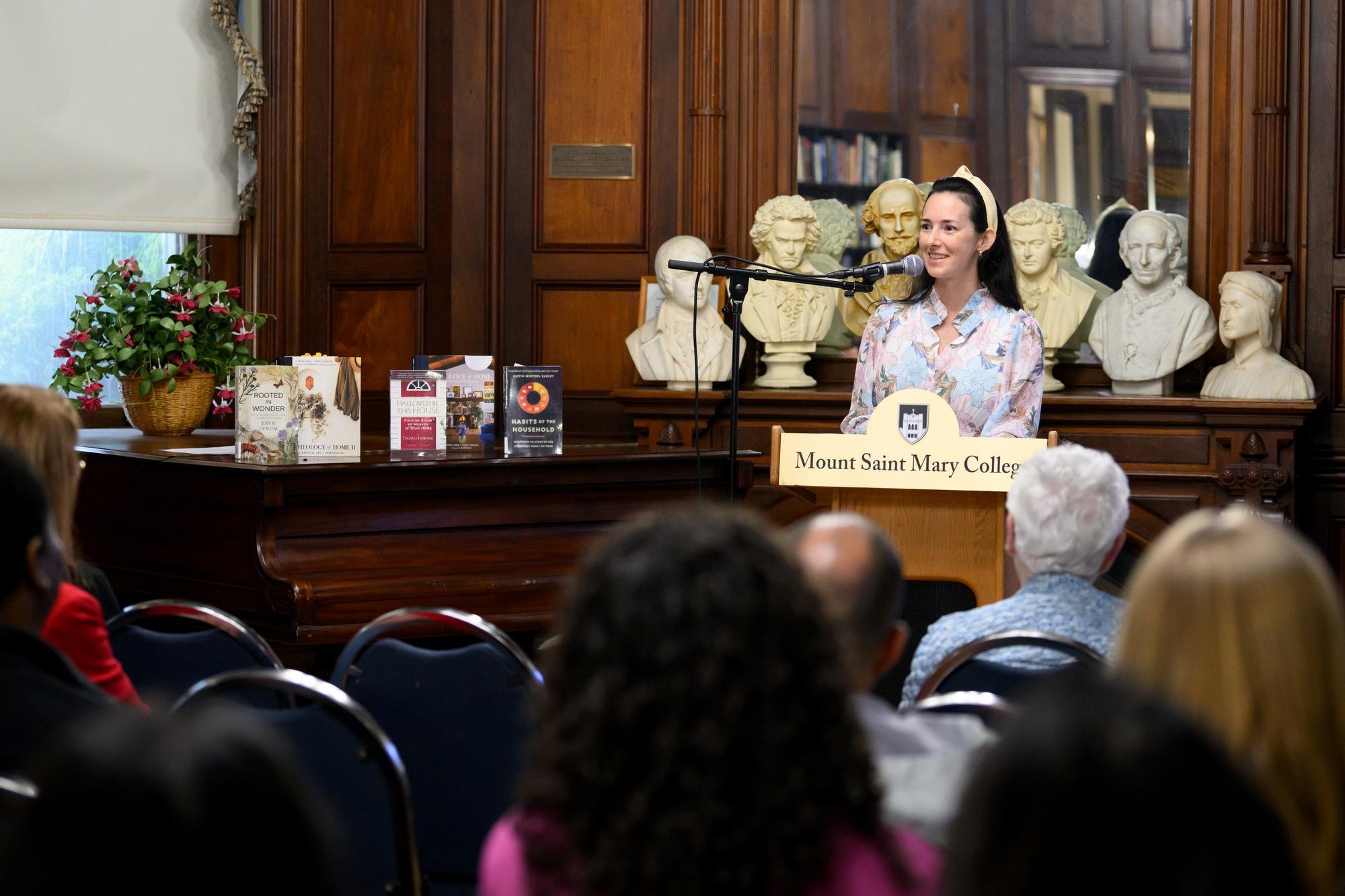Conferences - Religious
Thomistic philosophy workshop celebrates 13th year




Photos by Matt Frey
Dozens of scholars from around the globe explored the wisdom of 13th century Dominican friar St. Thomas Aquinas at the 13th Annual Philosophy Workshop, hosted at Mount Saint Mary College in late spring.
The theme of this year’s workshop was “Aquinas on Divine Simplicity.” The event combined presentations by philosophers with panel discussions and debate sessions, and included participants from the U.S., France, Ireland, Korea, and China.
The workshop was co-sponsored by the Mount’s Catholic and Dominican Institute (CDI) and the Thomistic Institute at the Dominican House of Studies in Washington, D.C. Since its inception more than a dozen years ago, the Aquinas Workshop has become the preeminent event of its kind.
The scholars were welcomed to the conference by Charles Zola, assistant to the president for Mission Integration, associate professor of Philosophy, and director of CDI; Fr. Gregoire Fluet, Interim President of the Mount; Evan Merkhofer, Interim Vice President for Academic Affairs and associate professor of Biology; and Fr. Ambrose Little, OP, assistant director of the Thomistic Institute and assistant professor of Philosophy at the Pontifical Faculty of the Immaculate Conception at the Dominican House of Studies.
This year’s presenters included Jeff Brower of Perdue University; Gregory Doolan of The Catholic University of America; W. Matthews Grant of the University of St. Thomas, MN.; Michael Gorman of the Catholic University of America; Joshua Hochschild of Mount Saint Mary’s University; Sr. Anna Wray, OP of The Catholic University of America; and Fr. James Brent, OP, of the Dominican House of Studies.
CDI promotes the Mount’s heritage of St. Dominic, advances the Dominican charism of study and service, provides a forum for discussion of contemporary ethical issues, and enhances Catholic and Jewish dialogue.
Other CDI events in the Spring 2024 semester included:
Nathan Stucky, director of the Farminary Project at Princeton Theological Seminary and an ordained minister in the Mennonite Church, examining the link between Christianity and agriculture with his talk “God and Dirt: Toward a Soiled Spirituality”;
Mary Ann B. Miller, a distinguished professor of English at Caldwell University, presenting “Celebrating Beauty in the Catholic Intellectual Tradition” as part of the Blessed Fra Angelico Lecture series;
and Lisa Bowens, associate professor of New Testament at Princeton Theological Seminary, discussing “Pauline Hermeneutics in Black Protest Traditions” as part of the Mount’s Black History Month celebrations.
Celebrating Sr. Peggy: New lecture series debuts in honor of Mount icon





Photos by Lee Ferris
Thanks to her sunny disposition and endless dedication to her students, there are few figures in Mount history as beloved as Sr. Margaret “Peggy” Murphy, a retired professor and current adjunct at the college. Sr. Murphy has made learning the principles of Catholic Theology a joy for her students for more than 20 years.
In celebration of all she has done for the college, the Spring 2024 semester saw the debut of the “Lectures in Applied Theology in Honor of Sr. Peggy Murphy” series. Co-sponsored by the Mount’s Catholic and Dominican Institute (CDI) and the Division of Humanities, the series kicked off with two talks about faith, given by Mount faculty members.
In the inaugural event, Robert Miller, associate professor of Theology and Religious Studies, presented “Adoration of the Blessed Sacrament: Its History and Place in the Spiritual Life.” Miller delved into the history of the adoration of the Blessed Sacrament and its significance to Catholics. In the Catholic faith, the Blessed Sacrament, also known as the Most Holy Eucharist, refers to the body and blood of Jesus Christ in the form of bread and wine.
“In Eucharistic adoration, you can know that you are in the presence of Christ as he was on Earth in sacramental form: body, blood, and spirit.” Miller said. “The divinity of Christ is omnipresent. After his ascension, his humanity is substantially present only in two places, in heaven and in the eucharist.”
Sarah Maple, assistant professor of Theology and Religious Studies, wrapped up the series for the semester with her talk, “Theology of the Home.” Our lives begin at home, being looked after by people who love us not for what we can do, but for the simple fact that we exist, noted Maple. The home is where we learn to live and how to act, and likely where we first discover faith, she added.
“The home is that sacred place, the sanctuary of the person, where in tenderness, we come to know the goodness of our own life and being,” said Maple. “Understanding ourselves in such freedom, the home is the greatest place of action, where being accepted for who we truly are, we learn to live freely in the discovery of wonder, and in play, and in prayer.”
